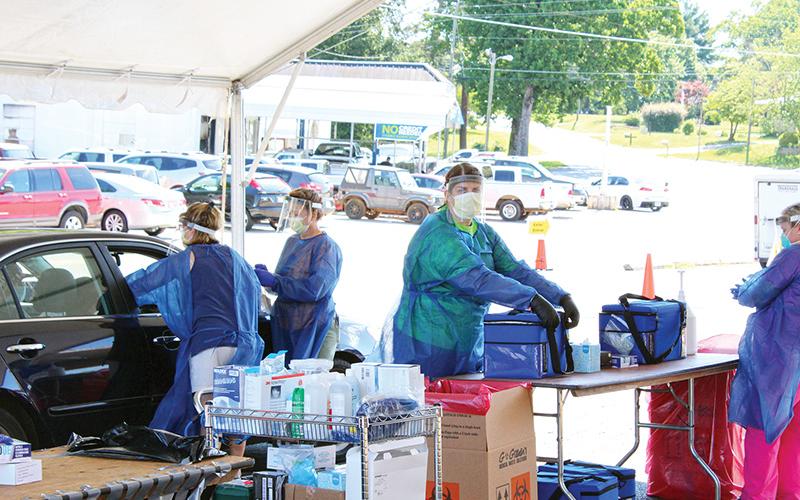Contact tracing is a key part of the original strategy laid out by the White House for states to reopen their economies and society in general from the COVID-19 pandemic.
The tracing process seeks to pin down exactly when and where someone contracted the virus, so that others can be warned to isolate, seek treatment and avoid potentially infecting others.
In an interview with CNBC last week, White House health adviser Dr. Anthony Fauci said “It’s not going well. What we need to do is we need to rethink, and we are right now, the idea of many more tests getting into the community and even pooling tests.”
Georgia hit a record number of cases for one week ending Saturday, with 11,176 positives over the previous seven days statewide. Habersham County’s spread has slowed significantly, with the last reported 14-day moving average at 3.3 new cases per day, while Georgia as a whole has seen more than 1,000 per day over the last two weeks as more businesses have opened.
As of Tuesday morning, the Department of Public Health reported that Habersham County was at 678 cases with 35 deaths.
The Centers for Disease Control and Prevention did not lay out specific guidelines for the contact tracing, and has instead left that to state and local health officials.
Dave Palmer, spokesman for District 2 Public Health, said case investigators call individuals who test positive for COVID-19.
“During this call, the case investigator will ask for information about their close contacts (who are) potentially exposed individuals,” Palmer said. “The case investigator will also advise the positive case on actions they need to take, like isolation, monitoring their symptoms, etc.”
Palmer said the names of close contacts are given to contact tracers, who will notify individuals who were identified as a close contact to someone who tested positive. The contact tracers will monitor the close contacts (via phone calls) for the 14-day quarantine period to see if they develop symptoms and to help facilitate testing if they need to be tested.
Some folks have been hanging up on contact tracers in general because the area code appears to be out of town, meaning it is likely a spam call of some kind. Palmer said the area code for the calls will be 470 or 404.
“If people do not answer, they will get a message to call the contact tracer. The contact tracer will make several attempts to reach the contact,” Palmer said.
The only personal information gathered by case investigators or contact tracers is name, date of birth, address, and phone number.
According to a CNBC report, CDC director Dr. Robert Redfield testified last week that there are about 27,000 or 28,000 people doing contact tracing work across the country. He later acknowledged that he estimates the necessary workforce to be about 100,000 tracers. Former CDC director Dr. Tom Frieden told CNBC the country will need even more, up to 300,000.
Palmer said his staff of around 30 has been able to keep up with contact tracing in this district.
“We have experienced some delays in getting results from the labs. We are now seeing results taking three to 10 days to return from the lab,” Palmer added.

